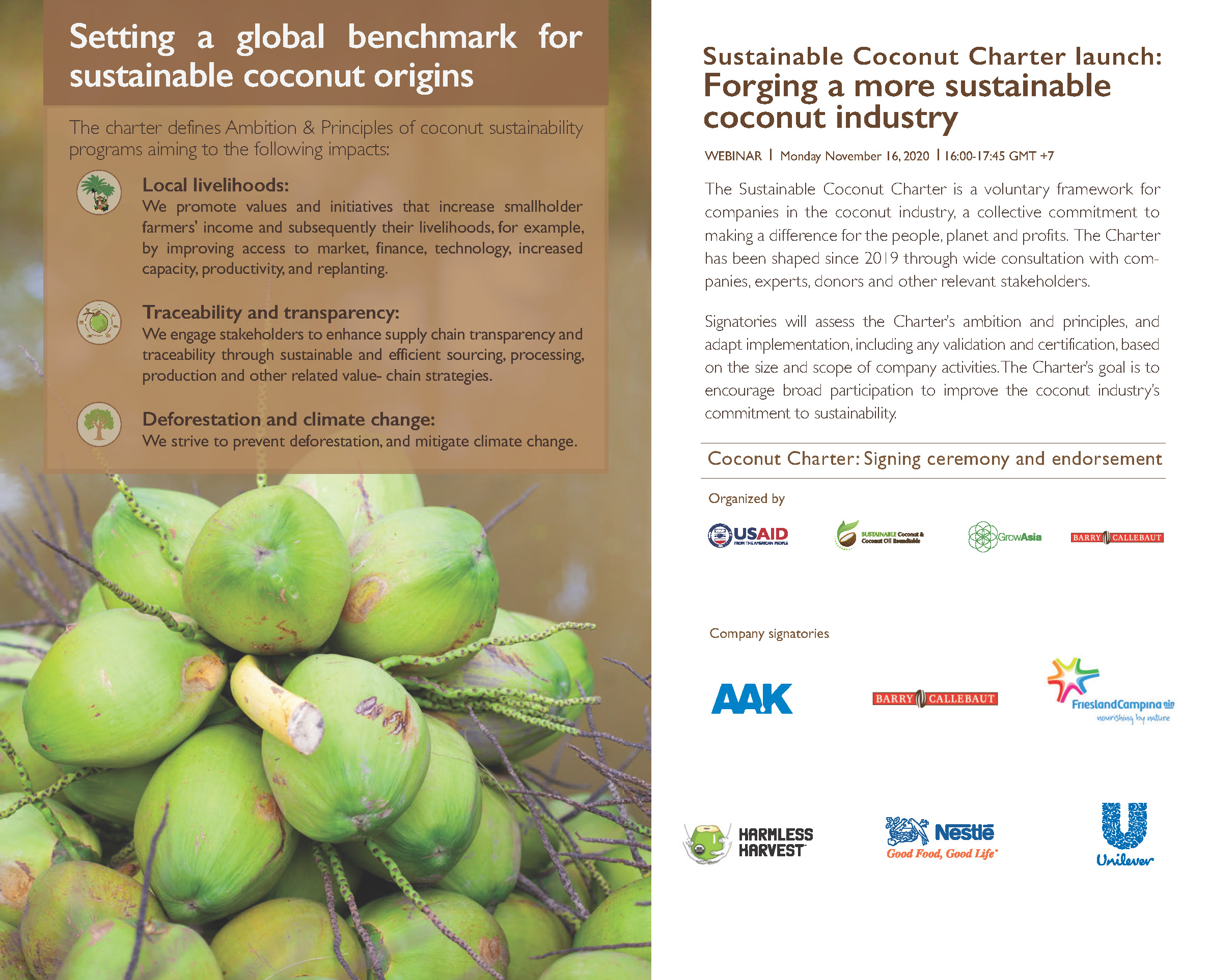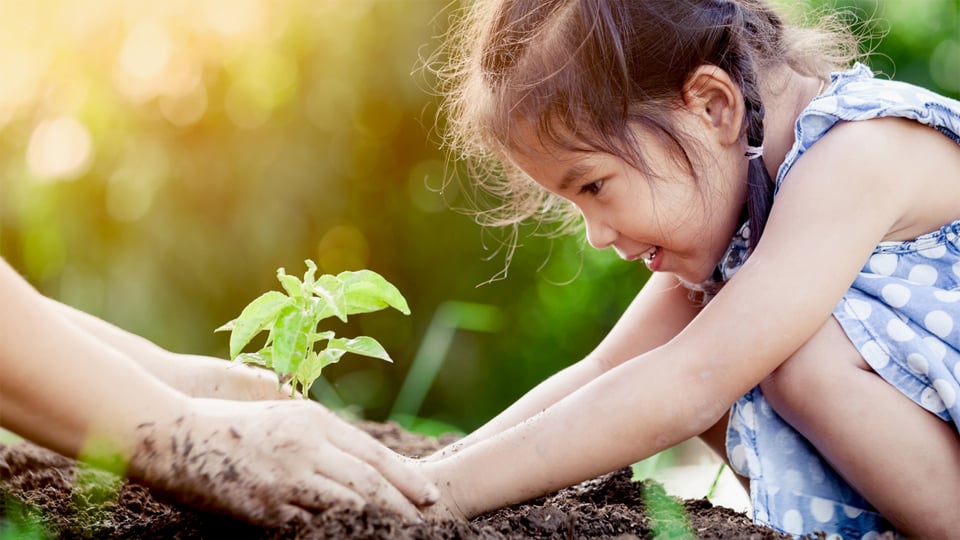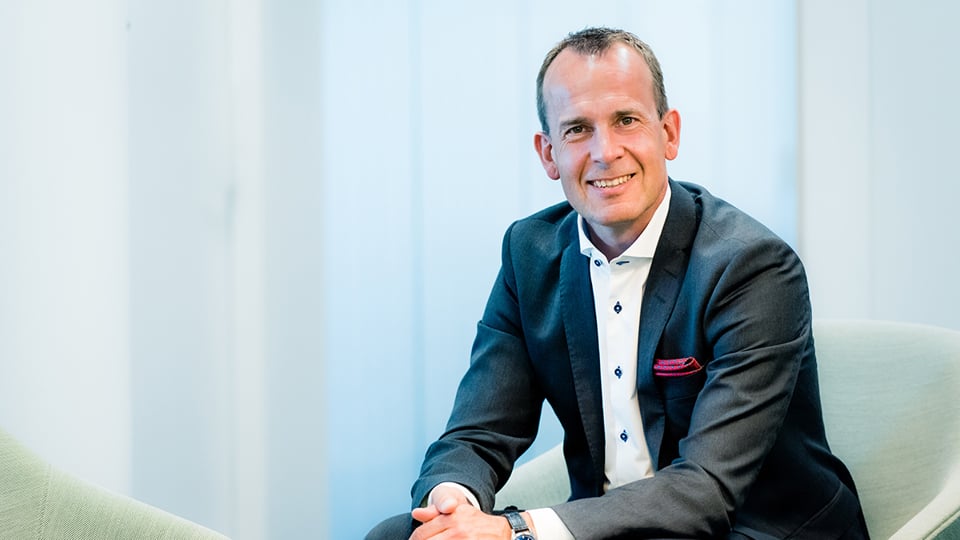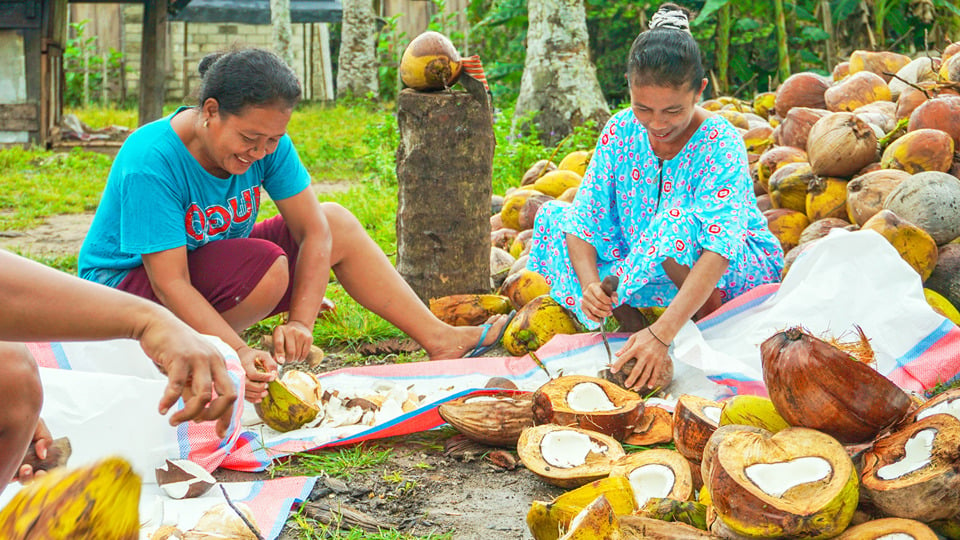With support from the USAID Green Invest Asia, private sector leaders, including AAK, have signed the coconut industry’s first global Sustainable Coconut Charter, which aims to improve farmer livelihoods, lessen the carbon footprint of coconuts and boost supply to meet rising global demand.
AAK, Barry Callebaut, FrieslandCampina, Harmless Harvest Thailand, Nestlé, and Unilever have all signed the Charter, an industry collaboration that defines coconut sustainability, and outlines focus areas, principles and sustainability program goals/outcomes in coconut supply chains. It also aims to harmonize buyers’ requirements for supply chain partners.
“AAK identified coconut as a key component of our sustainability portfolio in 2017. Since then, and mindful of the specific issues facing the coconut industry, we have been working with our supply chain partners to more deeply understand those issues and to engage with suppliers to transform. Having been one of the founders of the Roundtable on Sustainable Palm Oil and ever present on the Board, we recognize that there is a long road to achieving full sustainability for coconut, and that it cannot be done alone but must be by extensive pre-competitive collaboration”, said Tim Stephenson, President Sourcing & Trading at AAK.
“Therefore, we are extremely happy to join with other industry leaders to take an important step by signing the Coconut Charter, committing us all to moving the industry forward. I hope and trust this will result in a new momentum and I encourage more coconut growers, processors and end users as well as other stakeholders to join us to create the critical mass required to make better coconut production really happen.”
Coconut consumption continues to grow globally, increasing its profile as a safe food alternative. But with a rising demand year-on-year there is a risk of emptying shelves of hundreds of coconut and coconut oil-based products. A wide use of coconut in the cosmetics, food and beverage, and pharmaceutical industries has driven rapid growth of the global coconut market. One key challenge is how to replant – sustainably – millions of coconut palms that are senile, or too old, to produce coconuts.
“The charter is an important milestone on the way to improving coconut cultivation and farmer livelihoods”, said Massimo Selmo, Barry Callebaut’s Global Head of Sourcing. “I am pleased we have succeeded in bringing together key players and stakeholders at one table. This is a challenge that must be tackled together to be successful.”
“We are proud to have supported this valuable charter”, said Dr. Steven G. Olive, Mission Director of USAID’s Regional Development Mission for Asia. “The US government prioritizes working through the private sector to catalyze market reform and reduce greenhouse gas emissions that warm our climate. Guiding tools, such as this charter, create a landscape approach for sustainability in Asia. USAID stands ready to scale this initiative and look forward to more signatories joining.”
USAID (United States Agency for International Development) has supported this effort through Green Invest Asia, which helps agriculture and forestry businesses in Southeast Asia improve the sustainability and environmental stewardship of their operations by connecting them with like-minded investors and reducing barriers to investment.
AAK is excited to embark upon this journey towards a better coconut sector and celebrates the important milestone of launching the Sustainable Coconut Charter. Congratulations to all signatories and partners.
For more information about the charter and how organizations or individuals can contribute, please visit www.sustainablecoconutcharter.com/.

(Download high resolution image here)




